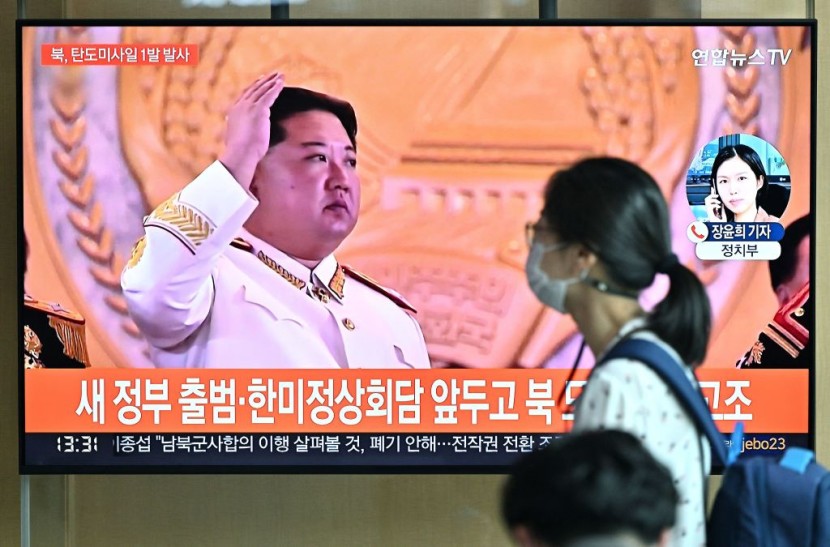
The chief of the International Atomic Energy Agency (IAEA) has called efforts to stop North Korea from developing nuclear weapons a "collective failure" of international safeguards and warned that Pyongyang could detonate a nuke one of these days.
In a lecture at Australian National University in Canberra on Tuesday, IAEA Director-General Rafael Grossi said, "Up until 2006, North Korea did not have nuclear weapons." He added, "A number of initiatives ... failed. And as a consequence of that, in 2006 [there was] the first nuclear weapon test, to be followed by five more."
Grossi pointed to the 1994 U.S.-North Korea Agreed Framework as an effort that failed to prevent Pyongyang from developing nuclear weapons. The Yongbyon nuclear reactor in North Korea had its operations suspended as part of that deal, which also included two civilian light water reactors, fuel oil, and security assurances, according to a report from UPI.
The agreement, however, fell through in 2002. Later six-party negotiations with China, Japan, North Korea, South Korea, Russia, and the US ultimately failed as well.
Expert Warns Pyongyang Now Has a Massive Nuclear Arsenal
The IAEA head claimed North Korea now has a "considerable nuclear arsenal" and that its next nuclear test "could take place any day." Hence, Grossi termed the attempts to stop Pyongyang's nuclear program "a big collective failure."
He claimed that "satellite imagery" shows that North Korea is "preparing for [a test]."
Since 2009, the UN monitoring organization has not directly accessed North Korea.
In September 2017, Pyongyang conducted its most recent nuclear test by detonating a weapon estimated to have a strength of 140 to 250 kilotons, at least 10 times more destructive than the atomic bomb the United States unleashed on Hiroshima, Japan, in 1945.
In March, North Korean leader Kim Jong Un launched an intercontinental ballistic missile, breaching a self-imposed moratorium on long-range missile and nuclear testing. Several weeks have passed since Seoul and Washington officials first expressed concern that the North may be about to launch a nuclear blast.
The US Is Ready To Respond
The IAEA chief's statements come a few days after North Korea lambasted the US, South Korea, and Japan for boosting their trilateral military cooperation against Pyongyang and warned about bolstering its military force "to actively cope with the rapid aggravation of the security environment of the Korean Peninsula and the rest of the world."
As per a report from The Guardian, one spokesperson of the North Korean foreign ministry remarked that the actions of the three nations "clearly shows that the real purpose of the US spreading the rumor about 'threat from North Korea' is to provide an excuse for attaining military supremacy over the Asia-Pacific region."
North Korea has long cited the US and its allies' alleged hostility as justification for pursuing a nuclear program.
Last month, per Al Jazeera, US Deputy Secretary of State Wendy Sherman warned if North Korea pursues conducting a nuclear test, it would be met with a "forceful" response from the US, South Korea, and the rest of the world.
After a meeting in Seoul with her South Korean counterpart Cho Hyun-dong, Sherman told the media: "Any nuclear test would be in complete violation of UN Security Council resolutions [and] there would be a swift and forceful response to such a test."
"The entire world will respond in a strong and clear manner. We are prepared," she noted.
Related Article: NATO Countries Sign 'Historic' Accession Protocols for Sweden, Finland as They Move a Step Closer To Alliance Membership








